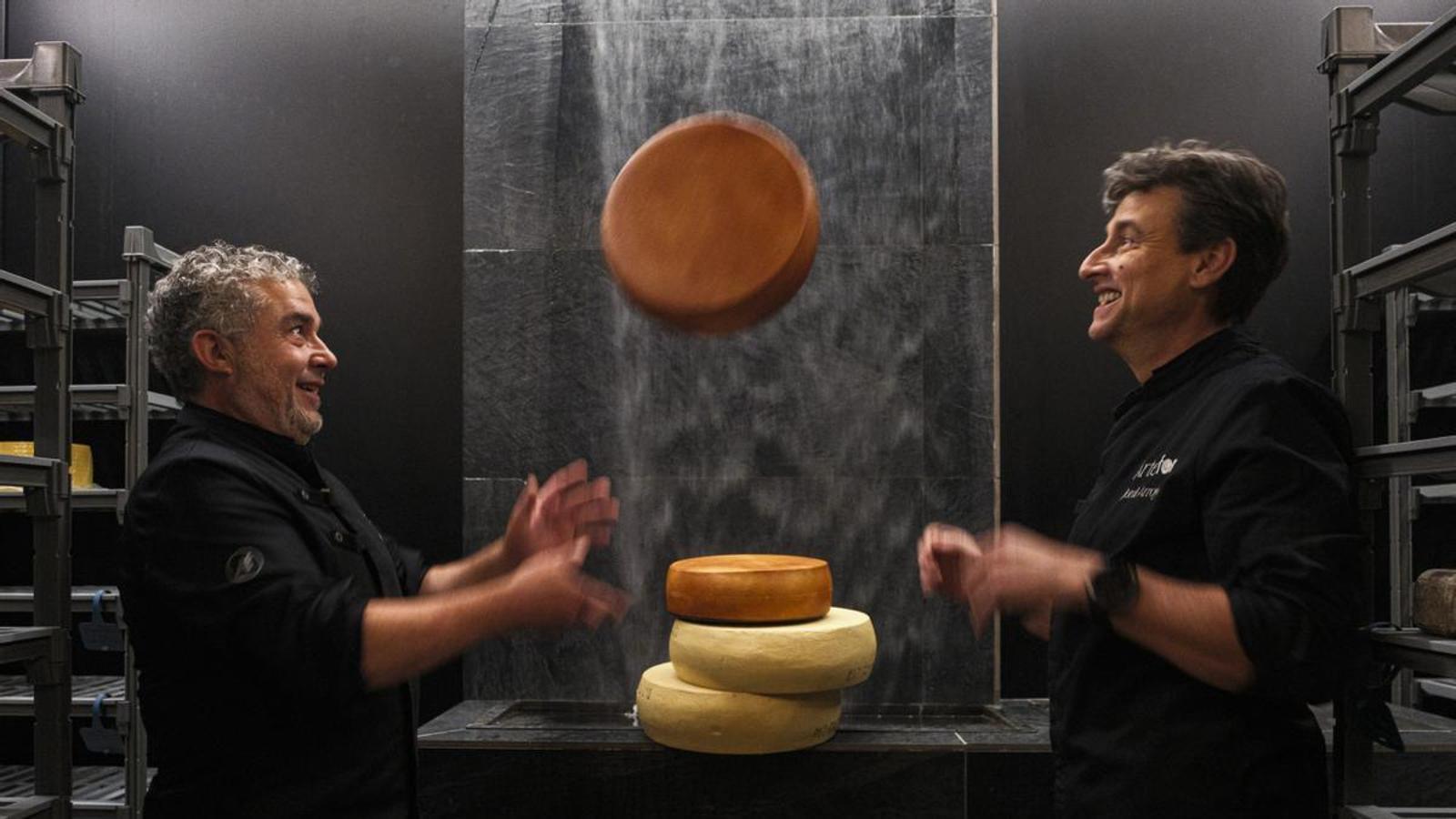"Catalonia is not a country of cheeses"
David Morera and Jordi Arroyo are the driving forces behind Artefor, a center where, from training to tasting, cheese is the protagonist.


"Cheese has a 7,000-year history. However, production here is difficult, there's no experience, we don't have a school. In France, there's a degree of professionalization, but not here. Catalonia isn't a country of cheese; it's not in our DNA," says David Morera, one of the driving forces behind Artefor. However—or precisely because of this—Morera had no better idea than to dedicate his life to cheese. So one day, David—"the best salesman," says Jordi Arroyo—joined forces with Jordi Arroyo, his partner—"the best scientist," says David—and the result is Artefor, a center dedicated to experimenting, advising, training, and tasting cheeses.
Artefor is both a physical space and an idea, a concept. Located in Poble-sec, Barcelona, they store cheeses from around the world under ideal conditions, in a refrigerated chamber bathed in seawater, which gives them a unique flavor, intensity, and character. They offer tastings and pairings, but it's also a center dedicated to training, attracting everyone from representatives of large industries to small professionals, from scientists to livestock farmers. People looking for ideas, advice, help...
"The cheese trade does not exist"
"In our country, the profession of cheesemaker doesn't exist," they say. "We get both people who are already involved in the cheese world but want to improve and grow, and people who have never been involved and want to start," David explains. "The problem is that from the outside, the idea is perceived as bucolic, romantic. The sacrifice isn't seen. There's both a lack of training and a lack of knowledge of the business," he adds.
And this is where their work begins. "We provide the tools, but it's really up to them to get ahead, which is why we often say No "to many of the commissions," Jordi explains. "We're interested in projects that have a longevity, in projects that we believe can work and last; from a business perspective, many ideas aren't well-established," he explains.
"Unlike what happened before, there's no doubt that cheese is now more valued, and great cheeses are made in our country, there's no doubt about that," David points out. "At the same time, however, precisely because it's fashionable, there are many people who want to get involved. With crises like COVID, for example, when there was a desire to get out of the cities, to reconnect with nature, some people thought that being a cheesemaker was a pleasant and interesting professional outlet, driven by this bucolic ideal of a farmer in the countryside with the desire to make cheese. The problem is just beginning: making cheese is easy, the difficulty is selling it," says Jordi.
Exorbitant prices
Both point to a widespread prejudice linked to the romantic notion of the artisan producer. "There have always been neurorural people, but in the 1980s the idea was more about moving to a communal house and living in the countryside. Now there are people whose only interest is earning as much money as possible. When grandma dies, they fix up the house, buy some furniture from Ikea, and rent it out. What's going to happen now that more people come than tourists, they make more money than one. They make cheeses, and that's happening. There are producers who, using the excuse of being rural and artisanal, have exorbitant prices. "We," David adds, "avoid making elitist cheeses; we look for people who are passionate about their work, hardworking, connected to the land."
Deep down, behind the romantic desires for cheese lies the undercurrent of the whole society, which considers everything industrial to be negative and sees artisanal things as positive. "The reality is more complicated," Jordi points out. "To begin with, although the large industry is conservative, it is also innovating, not just for small producers. Furthermore, making the product more technical doesn't mean prostituting it, it means reducing costs. I don't care if a label is put on by a hippie or a machine, what I want is to eat the best possible cheese at the best possible price."
